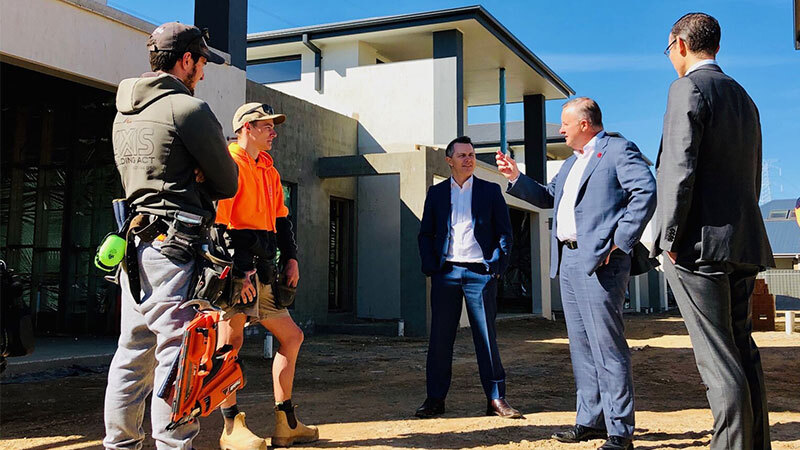Construction Sector Faces Jobs Crisis
Job losses in the construction and building sectors will be severe if the government doesn’t intervene, opposition leader Anthony Albanese said on Thursday.
The latest ABS data recorded a 5.3 per cent fall in construction industry jobs over the last six weeks, as job losses nationwide surpass the 800,000-mark.
Construction industry body Master Builders has warned that the worst is yet to come, with future work falling by up to 40 per cent—a figure cited by the opposition leader.
Master Builders reported major losses from its 32,000-strong membership body. A survey conducted by the group showed respondents had, on average, lost 40 per cent of forward-work on their books.
Housing starts are expected to dip below 100,000 in coming quarters—nearly halving from the 174,000 recorded in 2019 and falling to levels last seen in the 1960s.
UBS analysts said there has not been enough policy support directly aimed at housing to offset the expected declines.
“If [house] price falls do become very significant and potentially a macro-stability risk, we would expect further government support,” UBS analyst George Tharenou said.
It appears the federal opposition has heeded the call of unlikely bedfellows the Master Builders and the CFMEU for further construction industry stimulus.
Related: Biggest Contraction Since the 1930s: RBA

Opposition housing minister Jason Clare said the construction pipeline for new work is drying up.
“Everyone we’re talking to in the housing game are telling us the same thing, [that] future orders have gone off a cliff,” Clare said in a press conference on Thursday.
“And it will mean that hundreds of thousands of Australian tradies who work in the housing industry could lose their job.”
Moody’s analysts said that revenue for construction companies would likely decline in 2020 as global construction activity turned negative for the first time since 2017.
“We also expect continued delays in large infrastructure projects given supply chain disruptions and constraints on mobilising personnel at construction sites,” Moody’s analysts said.
Albanese said that the government and the national cabinet needs to invest in social housing and incentivise new builds and apprenticeships.
The jobs and wages data released by the ABS show the amount of jobs recorded by the Australian Taxation Office payroll system fell by 6 per cent between 14 March and 4 April.
Commonwealth Bank economist Gareth Aird said that the true deterioration in the Australian labour market is not adequately reflected in the reported ABS figures.
“Our forecast is for total employment to fall by around 700,000 over the June quarter,” Aird said.
“But we believe that there could be as many as one million people who will be classified as employed, but won’t be working any hours.”
The single-touch payroll system is used by 99 per cent of large employers—those with more than 20 employees—and 71 per cent of small employers.
















